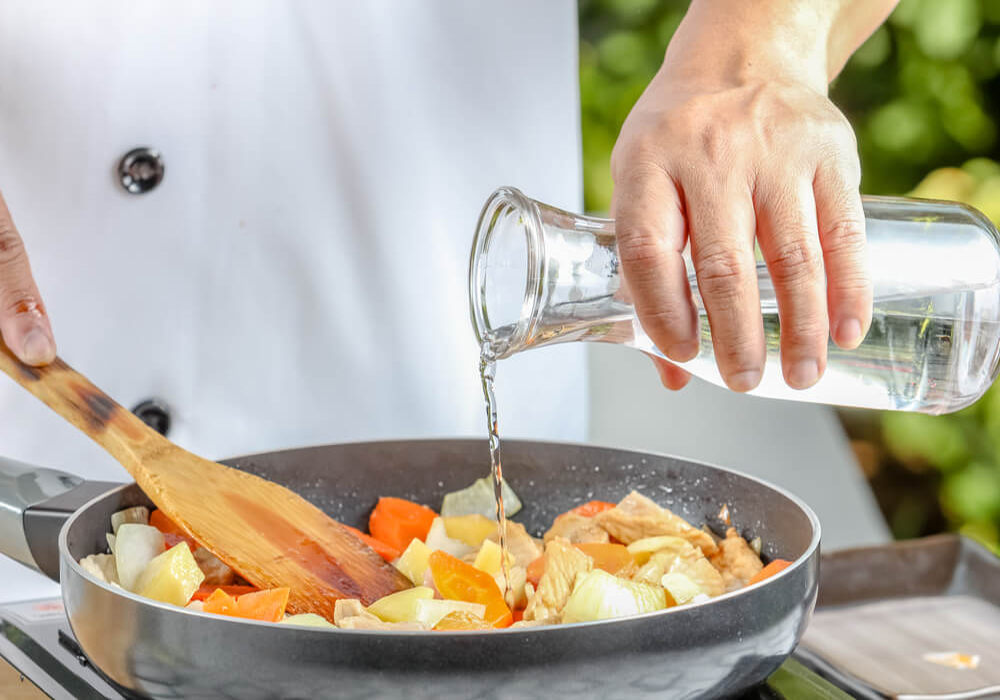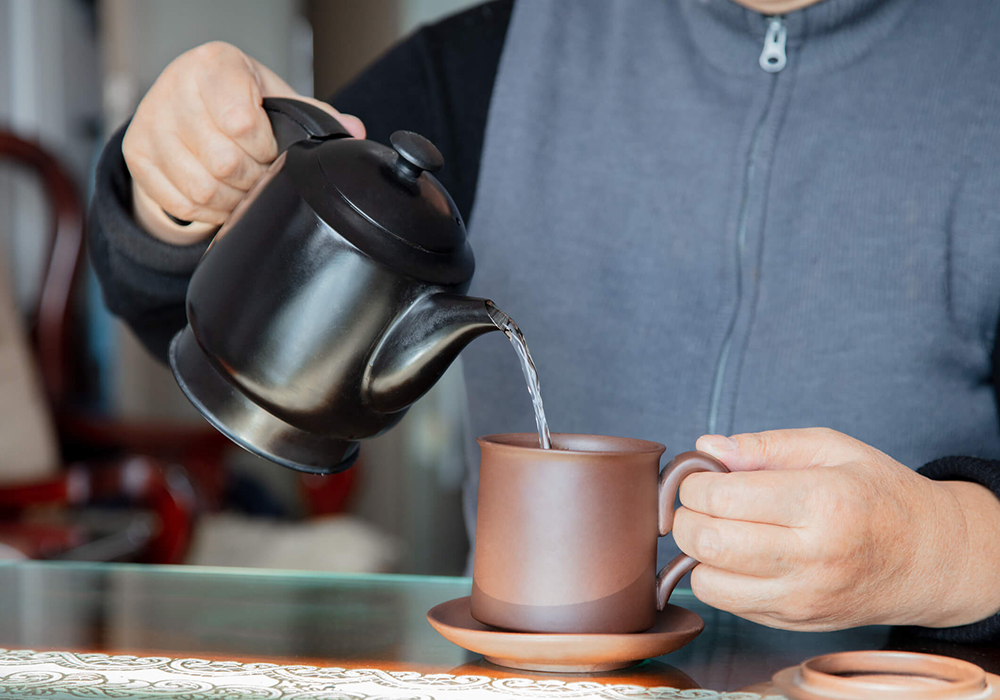Does cooking with distilled water make your favorite foods taste better? Many articles online claim that distilled water will remove minerals from food when it is washed or cooked, but many of these claims are untrue. In fact, cooking with distilled water can have huge flavor benefits over regular tap water.

Can I cook with distilled water?
Yes, cooking with distilled water will bring out the natural flavors and aromas of your food. Distilled water does not contain the minerals, chemicals, and other contaminants that tap water does, so it does not impart any unwanted flavors to foods when they are washed or cooked. However, because distilled water does not contain the minerals and other dissolved solids found in tap water or other treated water, foods that contain a high percentage of water may taste bland when using distilled water.
One of the biggest drawbacks to cooking with distilled water is the distillation time. Most countertop distillers take between four and six hours to produce a gallon of distilled water. If you use distilled water for drinking, you may have very little left over for cooking. Regardless, you have to plan further ahead when using distilled water for cooking than you would using water from another type of treatment system, such as a reverse osmosis system or activated carbon filter.
Advantages of cooking with distilled water
- Imparts Desired Flavors: Contaminants present in other types of water cannot impart their flavors to your food, whereas distilled water can.
- Prevents discoloration: The absence of contaminants in distilled water means that the color of food will remain the same before and after washing and cooking.
- Provides even heat distribution: Without minerals and other dissolved solids to change the boiling point of water, distilled water will boil more evenly at a more stable temperature than other types of water.
Disadvantages of Cooking with Distilled Water
- It takes a long time to produce: A typical countertop distiller takes 4 to 6 hours to produce one gallon of distilled water.
- Gives food more moisture: Because it contains no minerals, distilled water does not have the flavor of mineral-rich water.
- Difficult to use for washing: Since water distillers are not connected to a faucet, they are not as easy to use for washing fruits and vegetables as other water treatment systems.
Which water is best for cooking?
The best type of water for cooking is not the same for every dish or even every person. As long as the water is safe, the taste of food cooked in different types of water is entirely a matter of personal preference. However, there are some general guidelines to keep in mind. For example, foods like homemade soups that contain a lot of water may benefit from reverse osmosis or activated charcoal water instead of water from a distiller. Other foods, such as pasta and rice, will separate better and avoid discoloration when boiled in distilled water. In most cases, the difference in taste between foods cooked in various types of treated water is negligible. However, you should notice a difference between foods cooked in chlorinated tap water and foods cooked in treated water.

Distilled water can be used to make drinks, but it does not produce the best possible flavor. Two of the most important factors in the taste of water are its mineral content and TDS. Distilled water contains virtually no minerals and no TDS, which can give it a bland, unpleasant taste. Since water makes up a large percentage of most beverages, distilled water is not the best choice. For example, distilled water cannot extract the full flavor from coffee beans that water with minerals and TDS can, resulting in an unsatisfying cup of coffee. Other beverages, such as tea, also have a richer flavor when made with other types of water.
While many online sources claim that distilled water is unsafe to drink because it strips minerals from your body, this is simply not true. Distilled water is completely safe to drink, but it may not taste pleasant. Another misconception about drinking water is that it must contain minerals and nutrients to fuel your body. While tap water does provide some minerals, such as calcium and magnesium, it does not make a significant contribution to your daily intake. You should get your nutrients from food, not drinking water. If you need to replenish electrolytes or other nutrients from beverages, consider which beverage will provide the nutrients you need at that time.
Which water is best for making drinks?
Water that is free of chlorine and contains a moderate amount of TDS and minerals is ideal for making drinks. Many types of water treatment systems improve the taste of water, but we’ll focus on the two most common, activated carbon and reverse osmosis.
Activated carbon filter
CTO filters, which stand for chlorine, taste and odor, reduce the bitter taste that chlorine imparts to water. These filters use activated carbon to reduce chlorine, mercury, bad taste and odor, pesticides and herbicides, and other contaminants depending on the purpose of the filter. If you get your water from a municipal water plant, the water that comes out of your tap contains chlorine. While effective at killing microorganisms, chlorine doesn’t taste good every time you take a sip. Activated carbon filters are an inexpensive and effective way to improve the taste of your home drinking water. These filters also come in many forms. Refrigerator filters, water pitcher filters, and reverse osmosis systems are just a few examples of water treatment systems that use activated carbon.
Reverse osmosis system
Reverse osmosis (RO) systems are used to remove the majority of contaminants from water. They use a multi-stage treatment method that includes sediment filtration, carbon filtration, reverse osmosis membranes, and in some cases, a remineralization filter. Reverse osmosis systems that do not include a remineralization filter suffer the same fate as water distillers; they simply remove too many of the minerals that enrich the taste of the water. A remineralization filter adds these beneficial minerals back to the water, enhancing the taste of the water with virtually no other contaminants.
RO systems provide consistent, high-quality water regardless of the source. This is a huge advantage over activated carbon filters. Because mineral, chemical, and other contaminant levels vary from region to region, the quality of water coming out of a carbon filter varies from region to region and season to season. With an RO system, you provide a clean method for any beverage you create.
See more: Worry Of Iron Bacteria Existing In Water
To learn more about other powerful and unique water filtration systems distributed by Song Phung, order online at the website https://thietbinganhnuoc.com/san-pham or contact us on our hotline 0913.90.72.74 – 0984.620.494 for further inquiring.
Follow Fanpage: https://www.facebook.com/SongPhungthietbinganhnuoc/ to be updated with new products.


